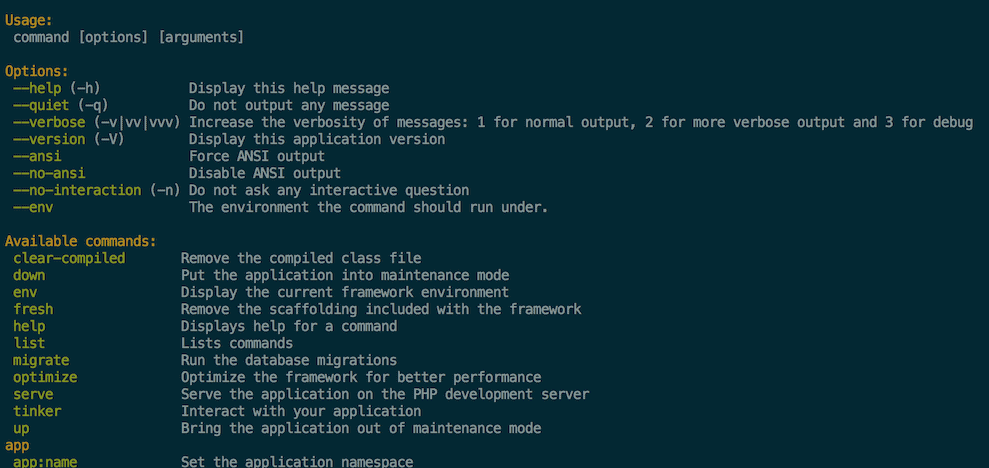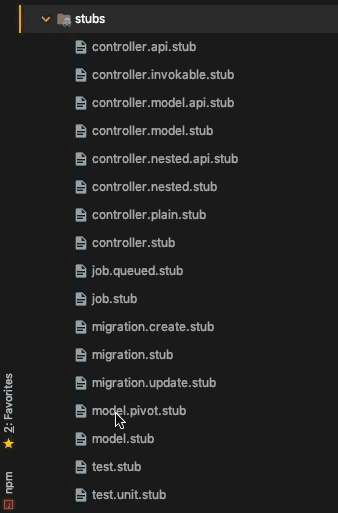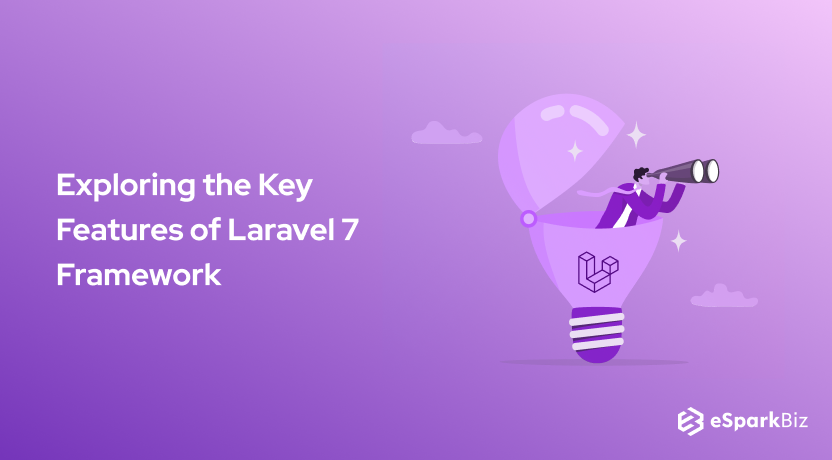PHP is a server-side, open-source scripting language suited for web development. You need to install a server for PHP to interpret it and thereby one can use it to develop E-commerce and database applications. Today, we will talk about the topmost Features of the Laravel 7 framework.
To help coders get rid of the complexities of programming with PHP, several PHP frameworks have been developed for programmers. CodeIgniter, Symfony, CakePHP, and Laravel being some of them, the Laravel framework has in recent times come up to be immensely popular.
Introduced in 2011 by Taylor Otwell, Laravel was developed as an open-source framework and followed the Model-View-Controller (MVC) architectural pattern for the development of web programs.
It is based on the Symfony framework and provides several features such as a modular packaging system, relational database accessibility in multiple ways, application deployment and maintenance utilities, etc. Laravel Helpers Functions are also part of that.
Since then, many versions have been released, the latest being Laravel 7. This post includes some upgraded Laravel features and benefits of Laravel 7.
Top Laravel 7 Framework Features
Laravel Airlock

Laravel 7 introduced the Laravel Airlock, also called the Laravel Sanctum which provides a featherweight authentication method for single-page applications, mobile applications, and token-based APIs.
Flexibility is allowed to the users to grant abilities to the tokens in terms of tasks to be performed by the authenticated users.
Laravel Airlock solves a couple of problems- that of the API tokens and that of SPA Authentication.
In the case of API tokens, Airlock simplifies the token issuing process without the involvement of OAuth. These tokens have a long life and are manually revocable by the user.
Airlock uses Laravel’s built-in cookie-based session authentication services in the case of SPA. This provides the benefits of CSRF protection, session authentication, and provides leakage protection of authentication credentials via XSS.
Custom Eloquent Casts

Cast types are essentially data types that are needed to build a program in any given language. In addition, Laravel supports several cast types by default- integer, array, object, float, double, etc.
However, at times, the programmer would need to define their cast types. Laravel introduces the CastsAttributes interface that can be used to define custom casts.
Such CastAttribute is a Laravel 7 Features that require a user to define “get” and “set” methods for implementation.
The get method is used to transform a raw value from a database into a casting value, while the set method transforms a stored cast value into a raw value that can be stored into a database.
Route Caching Improvements
The features of Laravel 7 introduce a new method of matching routes that have been cached using the route:cache Artisan command.
For applications with a large number of routes, this improvement can lead to a 2x improvement in speeds of requests as compared to that of the matching speeds provided by Laravel 6. No changes to the application are needed for this purpose.
Blade Component Tags Improvements
The blade is a powerful template utility engine provided by Laravel 7 Features.
Unlike other frameworks, Blade can be used in Laravel along with plain PHP codes in the views as all Blade views are compiled into plain PHP codes and cached until modified. Thereby adding zero overhead to the application.
In Laravel 7, the component class feature is introduced which can be used to store blade components and all the public objects and methods introduced in such class will automatically be available to the component view.
Improved Blade components also present inline view components, tag-based rendering, and much more. This an essential Features of Laravel 7.
HTTP Client
An HTTP client is essential to send requests to a particular server and retrieve data in response, which makes it an essential component for web developers as the web works as a result of the communication taking place between servers all the time.
Laravel 7 introduces an effective yet minimal interface that works around Guzzle HTTP client enabling the server to make quick requests to communicate with other web servers and applications.
Laravel’s wrapper around Guzzle focuses on the most commonly used cases and additionally, provides effective ergonomic testing.
Improvements in Markdown Mail Templates

Laravel’s pre-built templates and mail components have been of quite some importance in developing interactive HTML mailing templates for the messages.
These Laravel features can be taken advantage of through the usage of Markdown mails. In Laravel 7, the default Markdown Mail template has been provided with a refreshing and modern design based on the Tailwind CSS color palette.
This template can be further customized and published according to the application’s requirements.
Cross-Origin Resource Sharing Support

Cross-origin resource sharing is a mechanism that is used to call restricted resources on another domain to a web-page that has been built on some other domain.
CORS enables the web page to freely embed cross-origin images, stylesheets, scripts, videos, and so on.
Laravel 7 framework supports first-party support for configuring CORS OPTIONS request responses through Laravel’s CORS package.
Moreover, a new CORS configuration is included in the default Laravel application skeleton.
Improvements in Database Queue- Earlier versions of Laravel reportedly presented deadlocks at times and made it troublesome for web developers a lot of times while working with large databases.
Laravel 7 uses MySQL 8+ as their database-backed queue which prevents such troubles by using the FOR UPDATE SKIP LOCKED clause and other SQL enhancements.
Improvements In Database Queue
The Laravel 7 framework makes use of MySQL 8+ for database backend queue. It brings a significant improvement in performance.
The database driver is now capable enough of handling high volume production applications.
All New Artisan Command

The command-line interface that is presented by Laravel is called Artisan. Driven by the powerful Symfony Console component, it is quite helpful for developers as it provides several helpful commands to do the same.
Laravel 7 introduced the new test Artisan command that can be used to run the tests. The Artisan test runner provides an attractive UX console that provides more information regarding the test that is currently running. In case a test fails, the runner automatically stops.
Multiple Mail Drivers
Laravel 7 Features allows the configuration of multiple mailers for a single application.
The specific mailers that are configured within the mail system possess their option and even their own unique ‘transport’, this can be utilized to enable the application to use different email services to send certain email messages.
This is one of the finest Features of Laravel 7 that you will ever see.
View Cache Optimization

Laravel 7 provides a new config option called expires inside the view.php. This option skips the check to see if the view issued has expired or not.
This makes the reissuing process of the view convenient.
Dynamic Storage Links
Previously, in Laravel, by default, the command PHP Artisan storage: linked the data to a public directory.
Laravel 7 introduces a new Laravel feature using which developers will be able to define their storage links.
Fluent String Operations
Laravel’s default string class- Illuminate/Support/Str class, provides many helpful string manipulation functions.
Laravel 7 Features provides, over these default functions, a more fluent string manipulation library that is object-oriented using the Str::of method.
Several methods may be chained to the object to manipulate the string.
Customizable Stubs

Laravel 7 provides the stub:publish command to publish the most common stub for customization.
Such kinds of customizations are useful when small changes need to be done to the Artisan generated files.
The Artisan console’s make commands are used to create a variety of classes, and these classes are generated using the ‘stub’ files and some changes in these stub files can be done using this command.
The published stubs are located in the stubs directory in the root of the application itself. Changes made in the stubs and their corresponding classes generated using the make command.
Query Time Casts
Laravel 7 Features introduces a method- withCasts that one can use to execute a query using non-model custom attributes, such as a date.
This makes the process of executing a query while selecting a raw value from a table convenient.
How Can Your Business Benefit from Laravel 7?
Laravel 7 integrated with several Laravel Framework Features is beneficial both to the developer as well as the viewer.
The advancements in the framework suited for a business that wants to develop interactive websites and web applications.
Here are some ways through which the updated Laravel 7 can aid a business:
Better Security
PHP is a robust platform in terms of its security measures, which prevents the security issues that generally arise such as SQL injection, and cross-site scripting, etc.
The latest Laravel version adds to the security of the PHP module and makes the programming platform even more secure for any business to operate with.
Improved Performance
Performance is a crucial factor that any business requires to make the operations seamless.
Laravel 7 in these terms, has made significant advancements in the improvement of route caching speeds.
This improves the web application’s caching speed twice as fast as that of the previous versions.
Enhancement in Eloquent ORM
The Eloquent ORM makes it easier for developers to establish the interaction of an application with its database.
In any business generally, the developers need to work between different systems or programming languages which means that the data are often incompatible.
Eloquent ORM makes it possible for developers to convert the data between incompatible system types, easing the database handling.
Future-Ready
You can hire dedicated laravel developer as it consists of a huge online community that aids its development and enhancement in pace with the respective industrial trends and developments.
This makes it quite a reliant framework for any business to depend on as staying up-to-date is essential for a system so that a business can make efficient use of it along with the peripheral systems.
Multilingual
Laravel makes the development of a multilingual site for a wide demographic of clients easy and businesses can benefit from it in a great deal especially to serve a wide audience along with diverse linguistic demographics.
How to Upgrade to Laravel 7?
Upgrading to Laravel 7 is not a difficult affair and can be done within 15 minutes.
Here are some relevant upgrade information and the necessary steps that you need to follow:
- Firstly, the minimum PHP version required is the version 7.2.5.
- Upgrade Symfony to version 5.
- Upgrade the Laravel Framework dependency to version 7.0 in composer.json file.
- Rename the Blade::component method into Blade::aliasComponent.
- For The Eloquent ORM, the addHiden and addVisible have to be replaced with makeHidden and makeVisible methods.
- Version 7 uses Carbon’s toJSON method for date serialization. To keep the previous behavior, override the serializeDate method.
- Upgrade the factory types feature to factory states.
- To use the getOriginal method for its previous functionalities, use the getRawOriginal method instead.
- The resolveRouteBinding method now accepts a $field argument.
- The Zend Diactoros library becomes nyholm/psr7 Composer package.
- The mail configuration file has changed to include an array of mailers.
- The promotion Markdown mail component is no more. It is now a fresh-looking mail component with a professional and appealing design.
- The deprecated –daemon flag on the queue: work command is no more.
- The IlluminateHttpResourcesJsonResource class is no more and replaced by IlluminateHttpResourcesJsonJsonResource instead.
- With the Laravel 7, routes assigned with unique names as routes with duplicate names can cause unexpected behavior.
- The CORS support is now having default integration.
- The array session driver data is now steadfast for the current request.
- In Testing, The assertSee and assertDontSee assertions on the TestResponse class will now automatically escape values.
- In Validation, the different rules will now fail if one of the specified parameters is missing from the requests.
Conclusion
Laravel 7 has become widely popular in recent times due to obvious reasons.
The Laravel features play an exclusive role in this aspect apart from other conveniences it offers- integration possibilities, security features, and tremendous support from the online community.
All these make Laravel 7 a PHP framework worth giving a try, so hire programmer in India to explore and implement the best Laravel features in your future projects.
We hope you had a great time reading this article and it proves to be of great benefit for any Laravel App Development Company. Thank You.!


-
Is Laravel Worth Learning In 2024?
Oh.! YES. Old is Gold and Laravel is a prime example of it. It’s the best PHP framework to arrive. So, you should definitely learn it.
-
Is Laravel Front-End or Back-End?
Laravel is a Back-End solution that is used to develop robust web applications that are secure as well as scalable.
-
Explain the concept of contracts in Laravel.
contracts provide core services. They are a set of interfaces of the Laravel framework.
-
What does ORM stand for in Laravel?
ORM stands for Object Relational Mapping



